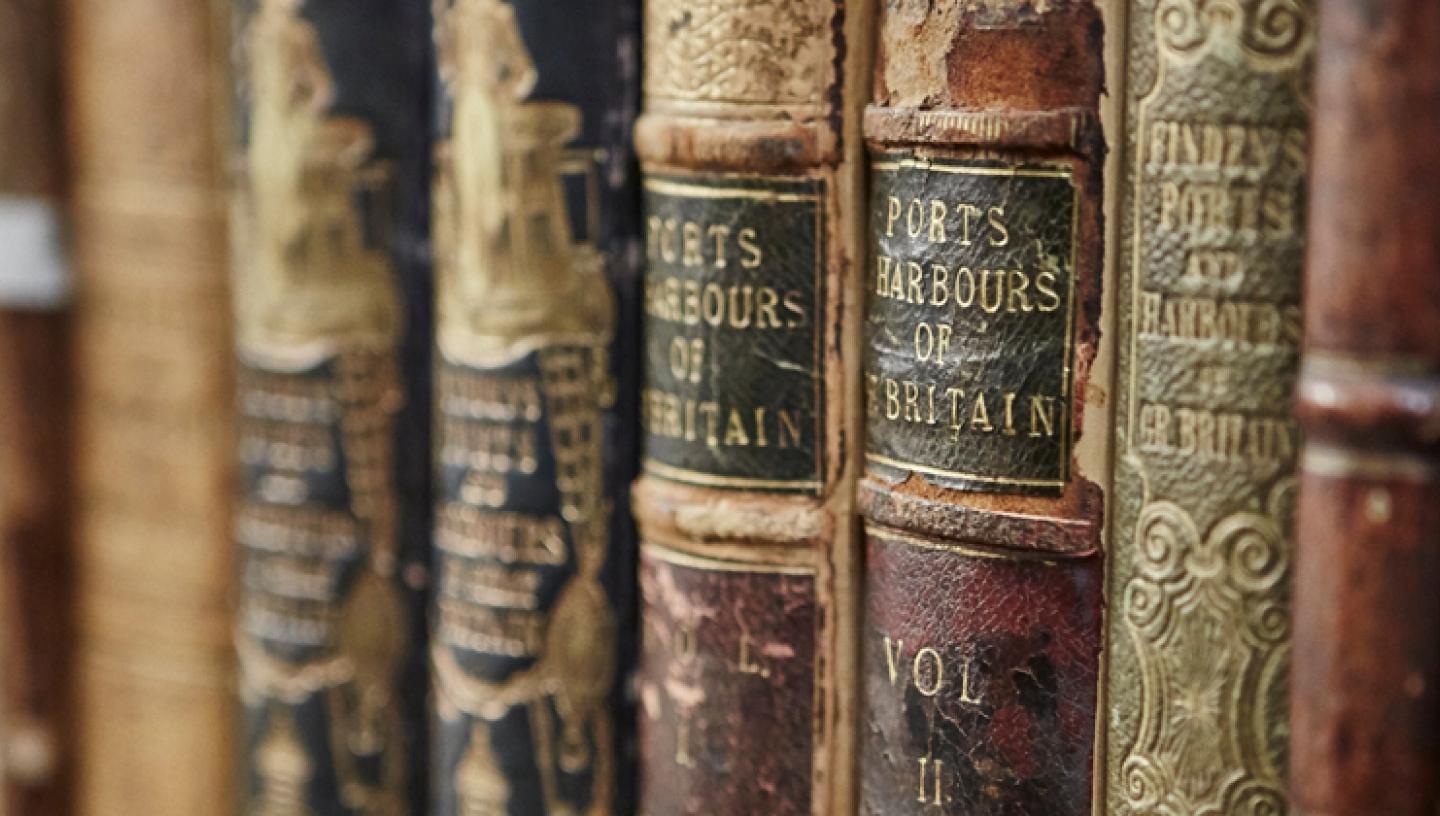
This brief guide gives the main books and sources of information that will help you research various types of flag. Research guide T1 outlines the Museum's collection of flags and lists historic foreign flags held by the Museum and how to view images and items of the collection. For further information, please contact the curator, Barbara Tomlinson:
Tel: +44 (0)20 8312 6724
E-mail: BBToml@rmg.co.uk
Bibliography
Reference numbers given in italics refer to the Library catalogue, which is available online.
British flags
- Ministry of Defence, Flags of All Nations BR20 (HMSO 1989) 929.9.021
Flag etiquette
- Ministry of Defence, The Queen's Regulations for the Royal Navy (London: HMSO 1997) 355.51(42) “1997"
Contemporary flags of the world
There are numerous books with colour illustrations of contemporary national flags. Rapid political changes worldwide however, mean publications rapidly become out of date. For the latest information available online in the Museum's research room, please contact the curator (as above).
Historic flags
- Wilson, Timothy, Flags at Sea: a Guide to the Flags Flown at Sea by the British and Some Foreign Ships, from the 16th Century to the Present Day (London: HMSO,1986) 929.9.024/025
- Hayes-McCoy, G A, A History of Irish Flags from Earliest Times (Dublin: Academy Press, 1979) 929.9(415)
- David, Brian Leigh, Flags and Standards of the Third Reich, Army, Navy and Air Force, 1933–1945 (London: Macdonald and Jane's, 1975) 929.9.024 (43)
- Smith, Whitney, Flags Through the Ages and Across the World (Maidenhead: McGraw-Hill Book Co., 1975) 929.9(100)
- Smith, Whitney, The Flag Book of the United States (New York: William Morrow & Co., 1975) 929.9.022(73)
- Real, Maria Eloisa Alvarez del, Banderas y escudos del mundo (Panama: Editorial America, 1986) 929.9.021
- Perez, Jose Luis Calvo and Gonzalez, Luis Gravalos, Banderas de Espana (Silex: Madrid, 1983) 929.9(46)
- Sierksma, Klaas, Flags of the World 1669–1670: a Seventeenth Century Manuscript (Amsterdam: S Emmering, 1966 ) 929.9"16"
House flags
Flags of merchant shipping companies:
- US Navy Hydrographic Office, Merchant Marine House Flags and Stack Insignia (Washington: US Navy Hydrographic Office, 1961) 929.9.025
- Loughran, J. L., A Survey of Mercantile Houseflags and Funnels (Wolverhampton: Waine Research, 1979) 929.9.025
- Lloyd's Code of Distinguishing Flags of the Steamership Owners of the United Kingdom (London: Lloyds, 1882) 929.9.05(42) (see other editions, 1882–1912)
- Griffin, James, Flags National and Mercantile (Portsmouth: Griffin & Co., 1895) 929.9.025
- Wedge, F. J. N., Brown's Flags and Funnels... (Glasgow: Brown Son & Ferguson, 1951) 929.9.025 (also editions 1929–1982)
Signal flags
Numerical naval signal codes were introduced at the end of the 18th century, replacing the simpler system set out in various editions of the Sailing and Fighting Instructions. In the new codes, a series of different flags was numbered one to ten and hoisted in groups of one to four flags. The number the flag hoist represented corresponded to a numbered order, word or sentence in the codebook. In 1817 Captain Frederick Marryat introduced a similar code for the merchant service.
From 1857 this was gradually superseded by the Commercial Code of Signals later known as The International Code. Nineteenth century ship portraits frequently show the vessel flying a hoist of four signal flags and a pennant. This is usually an identification code indicating the vessel's name. These identification signals are listed in the merchant codebooks available in the Museum Library. Older signal codebooks are in the rare books collection and the manuscript collections (see single volumes SIG/A Sailing and Fighting Instructions SIG/B signal books). Also see:
- Woods, D L, The Evolution of Visual Signals on Land and Sea, PhD thesis (Columbus: Ohio State University, 1976) 627.724/0725 (A useful guide to most of the different signal codes. Look here to find out to which code a particular group of signal flags belongs.)
- Kent, Barrie, Captain, Signal! A History of Signalling in the Royal Navy (Clanfield: Hyden House, 1993)627.72(42) “19" (A general history of naval communications. Contains handy tables showing 'England Expects', Marryat's code, semaphore, and World War Two and present day naval signal flags.)
Sledge flags
Flown by polar expeditions on sledges used between the mid-19th century and 1930s.
- Carr, H. G. 'Sledge flags, their origin and development', Mariner's Mirror, Jan 1941, Vol. 27, no. 1, p.5
Yacht flags
Yacht club burgees, ensigns and owners' identification or racing flags.
- Lloyd's Yacht Register (from 1879)
- Talbot-Booth, E. C., Ensigns and Burgees of Yacht Clubs of the British Empire (London: Sampson Low, Marston & Co Ltd, 1938) 929.9(41-44)029
Useful addresses
Unit 8
161 High Street
Kingston-upon-Hull
HU1 1NQ
United Kingdom
Tel:
E-mail: info@flaginstitute.org
The museum holds copies of the Flag Institute journal Flagmaster.
c/o The Briscoe Center
University of Texas
Houston, Texas
77006
USA
Tel: (781) 729 9410
Fax: (781) 721 4817
Email: info@vexillology.org
The museum holds copies of the Flag Research Centre journal.
Next steps
Other guides in the series which may be useful for research:
- Research guide T1: Flags: The National Maritime Museum Collection
- Research guide F1: Shipping companies: Records held by the National Maritime Museum
For general research help see:
- Research guide A2: Principal records for maritime research at the National Maritime Museum
- Research guide A3: Tracing family history from maritime records
Although care has been taken in preparing the information contained in this document, anyone using it shall be deemed to indemnify the National Maritime Museum from any and all injury or damage arising from such use
© National Maritime Museum 2000. All rights reserved.
Last updated April 2008
National Maritime Museum, Greenwich, London SE10 9NF
Tel: +44 (0)20 8858 4422 ~ Fax: +44 (0)20 8312 6632